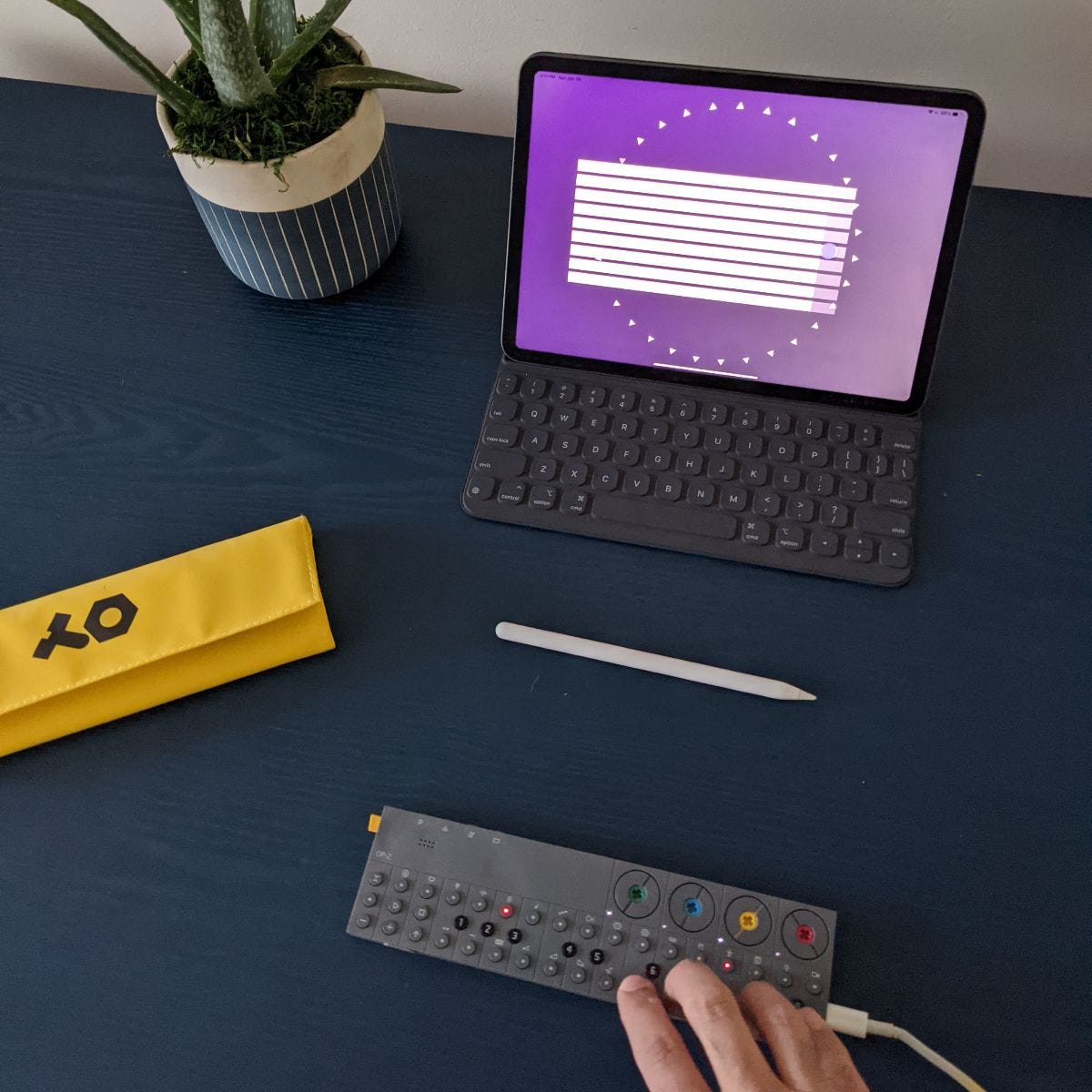Looking Toward an Anniversary
Seven years ago I released Patatap with music duo Lullatone. Time for some updates.
After trading lots of back-and-forth emails with my remote, virtual, and first-time collaborator Lullatone, I was putting the final touches on our inaugural audio-visual instrument, Patatap. We called it an audio-visual instrument because it produces both audio and visual outputs from the same gesture. The name too was a kind of onomatopoeia to us. We also used the project as a thought experiment: why does software have to be all encompassing?
At that time, some of the most popular ways to produce music were to make songs in a DAW, a digital audio workstation, like Ableton or Logic Pro. While effective, we wondered if software, like a guitar or piano, could exist as simply an instrument. Did it have to be able to do everything? What if it only did one thing? We think part of Patatap's popularity has to do with answering these questions through a simple and reductive interface. But, over the years it left people wanting more as well.
After reading reviews on the App Store and quietly observing how almost 10 million people have used it, it became clear to me that Patatap was lacking interoperability. In other words, how does Patatap talk to other applications? Could it talk to DAWs? In the world of digital music production, that mode of communication is known is MIDI.
So, starting today you can try controlling Patatap through a MIDI controller or DAW by going to the website in Google Chrome with the special URL query parameter: http://patatap.com/?midi. It requires some configuring on your computer, so if you get lost feel free to email me. Also, if you're interested in beta testing the new iOS version of Patatap, let me know and I will add you to my private Slack channel and Test Flight so that you have access and can provide feedback.
This idea of interoperability is specific to software ecosystems, but I find it also pertinent to today's landscape of discourse. I'll end this email with a couple of questions posed to you. How are you talking to others? Are there some different ways for us to speak to each other?
—Jono




